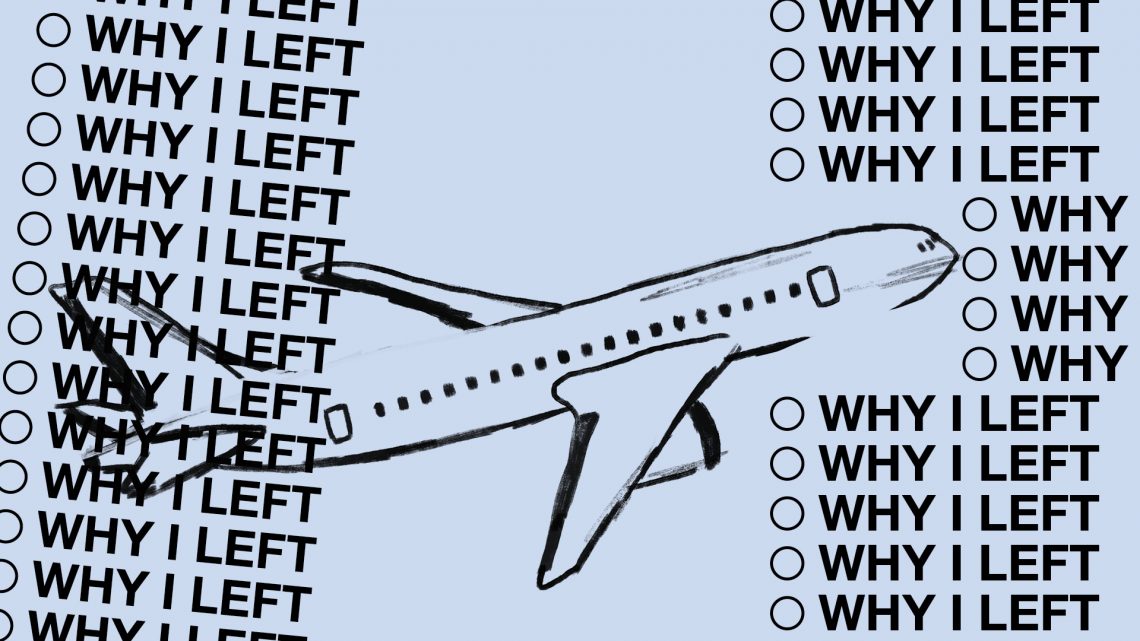
Why I Left My Public School Job in Oklahoma to Teach in Abu Dhabi
October 19, 2018This story appears in VICE Magazine's Power and Privilege Issue. Click HERE to subscribe.
It was 2009 and I was ready to go out and change the world.
Armed with years of studying best practices and effective pedagogies, I’d spent that entire summer interviewing for education jobs in my native Oklahoma’s public school system. But it seemed that no positions were available for someone with no experience, like myself, then a 22-year-old fresh out of college. Finally, months later, I stepped into my very first teaching gig: ninth grade English at a Title I suburban school with more than a third of students receiving free or reduced lunch. A month into the school year, because of overcrowding, these students were pulled from their English classes at random and placed in my “class,” which was really a cart I rolled around to different rooms each hour because there were none left open in the school.
From the very start I was set up to fail as an educator, a sentiment many of my students share today about the quality of education they are receiving in our public schools. It was just a few days into that first teaching job nearly ten years ago, after all, that I sat through a meeting I can now recite by memory after so many years of hearing it on repeat: Budget shortfall. No supplies. No new textbooks. Class sizes increased.
In this way, lawmakers who control the funding of our schools are tilting us toward an environment where only highly affluent students who can afford to move to attend “better” schools or pay for outside tutoring are able to succeed. This is especially the case when so much now rides on standardized test scores, and even more so amid a general underinvestment in per-pupil spending in the state. According to the Oklahoma State School Boards Association, compared with an average of $9,744 across neighboring states, Oklahoma spent $8,075 per student in 2015.
Meanwhile, class sizes continue to trend upward. I have witnessed teachers asked to instruct classes of 30 or more students, take on classes during the prescribed planning hour, and also pick up extracurricular activities with little to no extra compensation. At the same time, lack of parental and administrative support has made managing those numbers nearly impossible. When discipline issues arise because of overcrowding, teachers can find parents ready to fight them at every turn. If parents complain, a teacher better have ample documentation, but even then, the fault will somehow still lie with that instructor.
"Lawmakers who control the funding of our schools are tilting us toward an environment where only highly affluent students who can afford to move to attend “better” schools or pay for outside tutoring are able to succeed."
Less money, less support, fewer resources, more responsibilities—does this sound like the kind of career that has new college graduates lining up out the door? Over the better part of the past decade, I have watched countless excellent educators, frustrated with a general lack of respect shown teachers across this country, leave the state of Oklahoma or the teaching profession altogether, only to be replaced by less-experienced, untrained instructors.
In addition to ballooning class sizes and dwindling supplies, many students find themselves without the sort of institutional support they need to navigate one of the more confusing times of their lives. Counselors are stretched thin between testing and administrative tasks, when their time could be spent focusing on students’ mental health and advising them about college and careers when they need it most. I have to think that if our students had the proper support and resources, rather than being squeezed into classrooms that are already stuffed and made to think a one-size-fits-all college plan is the only way, then we could really prepare them for their individual futures. We could actually set them up for success.
The worst crime against public education, however, has been the calculated replacement of useful and meaningful instruction with repetitive, profit-driven standardized testing.
Teachers nowadays spend much of their class time preparing students for and administering mandated (and largely unfunded) benchmarks and high-stakes testing at year’s end. The pressure placed on educators to reach a certain pass rate on these exams is unreal. The year I taught tenth grade, a testing grade, for example, I had students who, near as I could tell, read significantly below their grade level and could barely write a sentence. Not only did I worry about my livelihood depending on how well they managed to perform under the circumstances, but the students were deeply anxious because their futures likewise also depended on how they scored on a single test that was years above their abilities. Students were in tears and sick to their stomachs from the stress.
We are breaking our kids’ spirits, stifling their love of learning, and crippling their confidence when we send this flawed message that their future worth hinges on standardized exams—which are devised, of course, by one of a small handful of testing companies profiting on the backs of a deteriorating public school system.
Young people, in turn, are increasingly frustrated upon graduation, when suddenly they are expected to make decisions about attending university, taking out student loans, and managing a budget, despite being given very little direction from the secondary schools entrusted to prepare them for adulthood. I recently asked some of my previous students if they felt that school was preparing them for their future, and overwhelmingly they answered no. The feeling is pervasive: Students across this country are sent the message that their education simply is not worth investing in. They watch parents, administrators, and lawmakers bully their teachers. They are effectively given the impression that the person in charge of their education, the teacher they see begging the community for classroom supplies and struggling to make ends meet, isn’t worthy of respect.
"We are breaking our kids’ spirits, stifling their love of learning, and crippling their confidence when we send this flawed message that their future worth hinges on standardized exams—which are devised, of course, by one of a small handful of testing companies profiting on the backs of a deteriorating public school system."
When I decided to become a teacher, I had no idea I was signing up for the financial sacrifice I’ve had to endure. I had no idea that I would not see any substantial raise in nine years or that I would have to take on additional jobs to pay off student loans. I had no idea that to continue in the career I love I would need to turn down opportunities for my own children, like providing them quality childcare or enrolling them in extracurriculars. I have been budgeting and downgrading for years, shedding countless tears each month when there was nothing left after I paid the bills.
I’ve had enough. So I’ve decided to leave.
My plan is still to teach, only now I have set my sights abroad. I hope to escape the chokehold student loans and careless lawmakers have had on both my life and the lives of those young people I’ve fought so hard for in the classroom in Oklahoma, as the balance increasingly tips out of their favor. As this issue went to press I’d already moved to Abu Dhabi, where I’ll teach English at a highly respected private school. Not only will I receive a $12,000 raise over what I’ve been making after nearly a decade in Oklahoma public schools; I will also receive a furnished apartment with utilities paid, health insurance for my entire family, tuition for my children, and an annual flight home. On my new salary alone, I can afford to finally pay off my student loans and provide my children with the education they deserve. When my infant daughter reaches the age of four and can enter preschool, she will do so free of charge. In the meantime my 5-year-old son, along with my new students, will attend classes of between 25 and 27 kids, something unfathomable in some Oklahoma public schools.
Looking back on my first teaching job, I am saddened to say that being a teacher in Oklahoma is far worse today. Inexperienced teaching hopefuls with college degrees in hand, as I once was, no longer struggle to find a job; they have their pick of positions across the state. No teaching certificate? No problem—schools will hire you first and train you later just to get a capable human in an overcrowded classroom. The problem is that this strategy only fills open positions; more instructors are still needed to lower those class sizes. And yet, more desks are added. Active teachers in the system who’ve been overburdened are now leaving in droves, and who can blame them? Not everyone has the luxury of being able to up and leave, either. Students without the financial means to seek quality schooling elsewhere will continue falling through the cracks.
I’m ready to go out again to try and change the world, and though I struggle to keep straight the hundreds of students’ names from over the years, I carry their memories and frustrations with me.
“Public school didn’t prepare me at all for my future,” one former student told me. “I expected a road map, like when you pick your classes each year. Now I am almost 21, have no idea what I am doing with my life, no idea what I want to do. I’m depressed and owe way too much money for college credits that will probably never mean anything to me because I left high school knowing less about how the future works than when I went in.”
Sign up for our newsletter to get the best of VICE delivered to your inbox daily.


